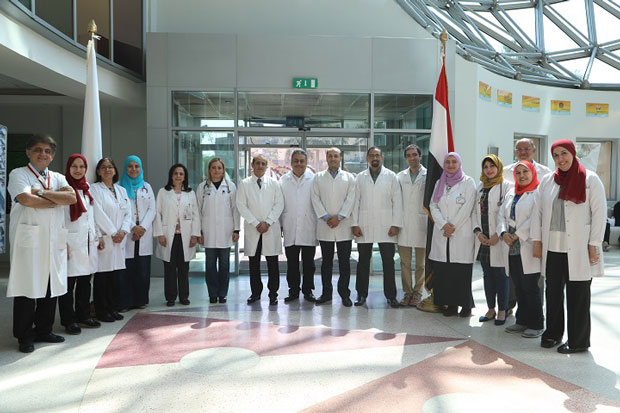Pediatric Oncology Residency Program
Program Description:
This comprehensive three-year Pediatric Oncology Residency program is designed to equip candidates with the requisite clinical skills, knowledge, and attitudes essential for proficient and safe practice in the dynamic field of pediatric oncology.
The program is structured to provide residents with a comprehensive understanding of various modalities and interventional procedures in pediatric oncology.
It aims to not only convey expertise but also to help individuals shape their long-term professional paths within the context of pediatric oncology.
Curriculum/Modules:
The curriculum is organized into four modules, each comprising mandatory courses. The modular framework is as follows:
Module I (1st Year): Orientation, Basics of Oncology, Hematological Malignancies.
Module II (1st and 2nd Year): Solid Tumors, Neuro-oncology.
Module III (2nd Year): Supportive Care, Bone Marrow Transplantation.
Module IV (2nd Year): Palliative Care, Basic Research, and Clinical Trials.
Interpersonal Skills Development:
In alignment with the specialized curriculum, trainees are required to pass mandatory augmentory courses at specific stages of their residency, focusing on crucial aspects of interpersonal development:
First Year: Advanced Life Support (ALS), Infection Control, Basic Interpersonal Skills.
Second Year: Intermediate soft skills (team and profession management), Patient experience – communication among health care providers.
Third Year: Advanced soft skills (organization leadership and entrepreneurship), Marketing for non-profit organizations, Health finance course.
The program's holistic approach aims to graduate a new generation of highly qualified and trained pediatric oncologists equipped to make significant contributions to the field.
Evaluation:
Rigorous evaluation mechanisms are incorporated into the program to assess the progress and competence of residents throughout their three-year program. Continuous feedback and assessments contribute to the development of each participant, ensuring they meet the highest standards of proficiency in pediatric oncology.
- Scientific and academic progress: Conducted by end-course MCQ examination
- Clinical skills: Evaluated by the rotational consultant through an evaluation form
- Procedure skills: Assessed through a log-book
- Attendance and participation in scientific activities: They have to attend at least 75% of the meetings across the 3-year period. To be recorded through an attendance sheet.
Certificate:
By the end of the program participant will receive certificate of Completion
